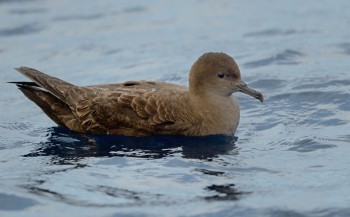Meagan Dewar (School of Exercise and Nutrition Sciences, Deakin University, Burwood, Australia) and colleagues have looked at gut microbiota in procellariiform seabirds, publishing in the journal FEMS Microbiology Ecology.
The paper’s abstract follows:
“Despite the enormous amount of data available on the importance of gut microbiota in vertebrates (especially mammals), there is no information available on the microbiota of seabirds. Procellariiformes are long-lived seabirds that consume a diet high in lipids and are characterised by their ability to produce and store large amount of stomach oils through the partial digestion of prey (with the exception of the Pelecanoididae). Examining the faecal microbiota of three Procellariiform species (short-tailed shearwater, common diving petrel and fairy prion) provided a unique opportunity to not only characterise the gastrointestinal (GI) microbial composition of seabirds but to also examine the influence of stomach oils on the microbial community. The results indicated that Procellariiform seabirds host a highly diverse community of faecal microorganisms, dominated by three phyla (Firmicutes, Proteobacteriaand Bacteroidetes) and that each species has its own species-specific GI microbiota. In addition, significant differences were observed in the microbial communities of oil-producing and non-oil-producing seabirds. This study is the first whole-community examination and classification of the faecal microbiota of Procellariiform seabirds.”

Short-tailed Shearwater, photograph by Kirk Zufelt
Reference:
Dewar, M.L., Arnould, J.P.Y., Krause, L., Dann, P. & Smith, S .C. 204. Interspecific variations in the faecal microbiota of Procellariiform seabirds. FEMS Microbiology Ecology DOI: 10.1111/1574-6941.12332.
John Cooper, ACAP Information Officer, 20 June 2014

 English
English  Français
Français  Español
Español